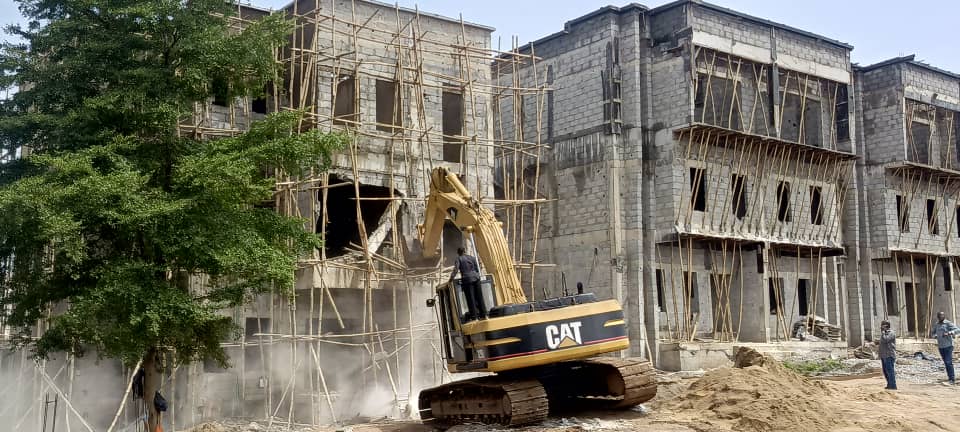By Remi Johnson
No fewer than eleven units of flats, comprising three and four-bedroom apartments, have been demolished in Apo Dutse, Abuja, raising fresh questions about how a legally allocated plot could turn illegal without building approval in the Federal Capital Territory (FCT).
Director of Development Control, Federal Capital Territory Administration (FCTA), Mukhtar Galadima, who led the demolition exercise on Thursday, October 16, 2025, explained that the affected buildings were erected in violation of development regulations.

He clarified that any construction on a legally allocated plot could be termed illegal development without building approval from relevant authorities.
According to Galadima, the demolished structures were situated directly under a high-tension line and on the right-of-way of a proposed bridge, rendering the development unsafe and inconsistent with Abuja’s master plan.
“This is a statutorily allocated plot,” he said. “The developer applied for building plan approval, but we declined because the site falls too close to a high-tension line and a stream channel. Despite several warnings, stop-work notices, and formal communications, they went ahead with construction.”
He revealed that although the plot was legally allocated, the allocation itself was made in error, adding that the developer had been offered an alternative plot but refused to accept it. “Instead, they continued building on a site that had no approval,” Galadima said.
On the issue of compensation, Galadima was emphatic: “Compensation is only given for properties with valid approval that are later affected by government development projects. In this case, there was no approval, and notices were ignored. So, there will be no compensation.”
He also hinted at the possibility of prosecuting the defaulting developers, noting that offenders could be surcharged to pay penalties, including the cost of demolition and site mobilization.
However, the incident has sparked a broader debate on whether a developer should bear the cost of what the FCTA admits was a wrong allocation, while the government maintains that ignorance of the law is no excuse.
Some FCT residents argued that administrative errors should not solely punish private investors who acted in good faith.
What then are the lessons for developers? The lesson is clear, allocation does not equal building approval, as a valid building plan approval from the Department of Development Control is what legalizes construction in the FCT.
Another lesson is that every developer, before groundbreaking, must confirm zoning compliance, environmental safety, and structural approval to avoid costly losses.
Also, ignoring stop-work orders or assuming political backing can only lead to economic wastage, demolition, and possible prosecution. As Galadima noted, “Every notice served is an opportunity to correct a mistake before it becomes irreversible.”
In the end, while the FCTA must improve its internal coordination to prevent wrongful allocations, developers too must uphold due process for safety, legality, and the preservation of their investments.
